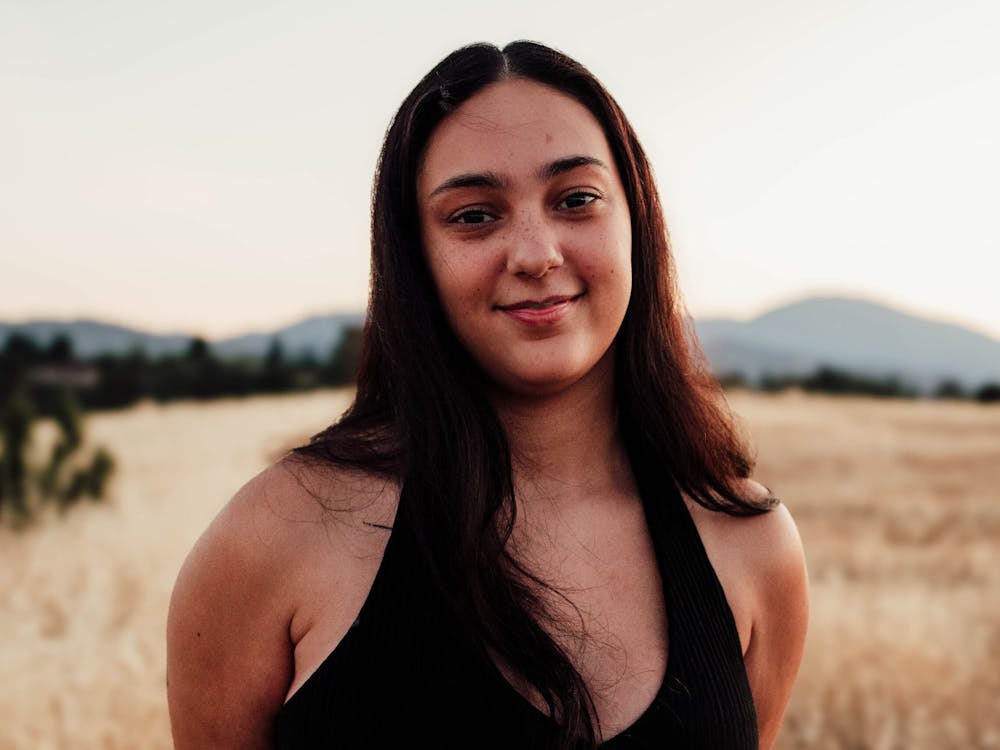Last semester after a night of hanging out with friends, I woke up with my male friend on top of me, having pulled off my pants and underwear. I was upstairs in a bedroom, having gone to bed earlier than the rest of my friends. I was sleeping and was awakened by him repeatedly kissing me, with one hand unbuttoning his pants and the other hand inside of me. He literally “grabbed me by the pussy.”
It was not an easy decision to share this story, nor do I take it lightly because it was an incredibly personal and invasive event. And even in choosing to share it, the rape culture our society perpetuates still keeps me from feeling completely comfortable identifying myself. Instead, two of us are writing this commentary and the “I” refers to the assault victim’s experience and “we” refers to our shared experiences as women. Our names are Alex Hall and Claire Kenneally.
We hope that this article will explain the drowning feelings of anger, fear and pain that many women are currently feeling. Since Donald Trump's election, we have heard some of our conservative counterparts say that they don’t understand our unwillingness to “move on” or to “unite even in the face of adversity.” We hope that this helps you understand how we feel, and why we feel it.
We are women who have experienced catcalling and groping, and one of us has experienced sexual assault. We have been made to feel afraid, disrespected and unworthy. How would it make you feel to have had that experience and then to hear that the man elected to be our President brag about doing these same things to other women? To hear the man elected President brag about the same actions that made me feel dirty and disgusting and alone that night, and to dismiss them as “just words” broke both of our hearts. How would you feel hearing your father, friends, family members and individuals on the internet accept or overlook that behavior?
As a sexual assault survivor, I’ll tell you how it makes me feel: I felt worthless, like my experience and the pain and violation that came along with it was an overreaction and my own fault. I felt like I was being told that what he did to me wasn’t wrong and the underlying message was that my body was not mine, but the property of any man who wanted to “grab me by the pussy.” Hearing that behavior and language condoned, shrugged off and even laughed at made me feel victimized all over again.
Now with this experience in mind, can you understand how the election of Donald Trump makes both of us feel angry, confused, hurt and attacked? Is it fair to tell me to "stand united" with a President and with individuals who support him, who justify and explain away my sexual assault and violence as something that I need to just get over; or as something that wasn't sexual assault at all, but something a man is allowed to do to me? Is it fair to ask me to support a man who will “grab women by the pussy” and treat them as objects like I was treated that night?
On election night, I felt alone.
By voting for Donald Trump, my country, friends and family either on some level support, or choose to ignore the sexist notions that our president-elect embodies. And in that, turned their back on those of us who have directly felt the affects of sexual violence and harassment.
We are only one perspective. We write this piece knowing that we come from white, straight, able-bodied, and cisgender privilege.
But as women who have been affected by sexual violence, we both have a glimpse into the pain and suffering that other minorities feel in this moment as well. Too often we've heard, "Well how will a Donald Trump presidency really affect me?" To those asking this question, we urge you to consider that how it will affect you may not be what you should be concerned about, because a decent amount of you won’t feel affected.
We ask you to think of the millions of women, people of color, Muslims, LGBTQ individuals and immigrants for whom a presidency under Donald Trump means living in fear in a country where those in the highest of powers disrespect and threaten your fundamental human rights.
We invite you to think about how it makes us feel to hear you tell us to "move on" or that we are "dividing our nation" when we express these fears. Imagine how hard it is to "get over" a President who brags about sexually assaulting women like us.
Telling us to "move on" is a demonstration of your privilege: the privilege to be able to ignore the discrimination happening because it won't affect you, and disregarding how much it will affect others.
When you talk about unity and joining together as one nation, we believe you mean that. But instead of asking us to stoop to your level of "unity"— one that glosses over and mitigates our fears and pain, we invite you to rise up to our level. We invite you to recognize and share in this painful experience of sexual assault and vulnerability, and the hardships of other marginalized communities that are hurting far worse than we are right now.
We invite you to accept and validate our experiences, to be an ally and support to your fellow Americans, especially those who differ from you. Lastly, we invite you to engage in conversation with your hurting friends, and truly listen to their words. You may not agree with what they are saying but let them know that they are heard.
To our conservative friends and family who voted for Trump, this article is not meant to attack you or your beliefs. We are not trying to imply that you too are racist, sexist or homophobic. Rather, we simply hope to increase your understanding of our frustrations and perspectives, and hope you will consider why we are so hurt by this election.
Actions speak louder than words, and the actions of the American people have indicated that they condone Donald Trump's behavior, rhetoric and ideology. So when you question why we protest in the streets, why we argue with you or why we post poignant articles on Facebook, we hope this gives you insight to our pain and why this man is #NotOurPresident.
Claire Kenneally is a senior social work and social justice major and can be reached at kenneall17@up.edu and Alex Hall is a senior nursing major and can be reached at halla17@up.edu.








